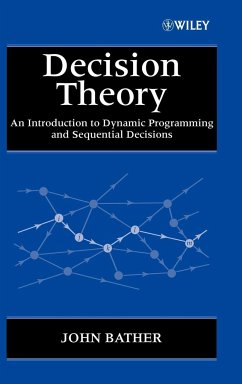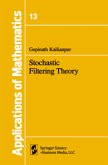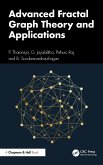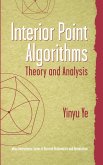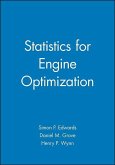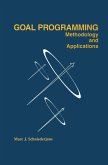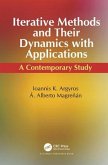Die Anwendung des Induktionsprinzips auf die Lösung von Optimierungsproblemen ist gegenwärtig gefragt und wird viel diskutiert. Der Autor dieses Bandes beginnt bei einem historischen Abriß und beschreibt anschließend deterministische Modelle, in denen die Wahl zwischen zwei Möglichkeiten nicht vom Zufall beeinflußt wird. Im zweiten Teil wird der Unsicherheitsfaktor einbezogen; der dritte Teil befaßt sich mit speziellen, fortgeschrittenen Anwendungen, beispielsweise Markov-Prozessen. (04/00)
Mathematical induction, and its use in solving optimization problems, is a topic of great interest with many applications. It enables us to study multi-stage decision problems by proceeding backwards in time, using a method called dynamic programming. All the techniques needed to solve the various problems are explained, and the author's fluent style will leave the reader with an avid interest in the subject. * Tailored to the needs of students of optimization and decision theory * Written in a lucid style with numerous examples and applications * Coverage of deterministic models: maximizing utilities, directed networks, shortest paths, critical path analysis, scheduling and convexity * Coverage of stochastic models: stochastic dynamic programming, optimal stopping problems and other special topics * Coverage of advanced topics: Markov decision processes, minimizing expected costs, policy improvements and problems with unknown statistical parameters * Contains exercises at the end of each chapter, with hints in an appendix Aimed primarily at students of mathematics and statistics, the lucid text will also appeal to engineering and science students and those working in the areas of optimization and operations research.
Hinweis: Dieser Artikel kann nur an eine deutsche Lieferadresse ausgeliefert werden.
Mathematical induction, and its use in solving optimization problems, is a topic of great interest with many applications. It enables us to study multi-stage decision problems by proceeding backwards in time, using a method called dynamic programming. All the techniques needed to solve the various problems are explained, and the author's fluent style will leave the reader with an avid interest in the subject. * Tailored to the needs of students of optimization and decision theory * Written in a lucid style with numerous examples and applications * Coverage of deterministic models: maximizing utilities, directed networks, shortest paths, critical path analysis, scheduling and convexity * Coverage of stochastic models: stochastic dynamic programming, optimal stopping problems and other special topics * Coverage of advanced topics: Markov decision processes, minimizing expected costs, policy improvements and problems with unknown statistical parameters * Contains exercises at the end of each chapter, with hints in an appendix Aimed primarily at students of mathematics and statistics, the lucid text will also appeal to engineering and science students and those working in the areas of optimization and operations research.
Hinweis: Dieser Artikel kann nur an eine deutsche Lieferadresse ausgeliefert werden.
"This textbook...draws on his many years of experience in teaching this topic as well as on his considerable professional expertise in the area. It is ideally suited to its stated purpose as a student text." (Short Book Reviews, Vol. 20. No. 3, December 2000)
"...I was impressed with this book..." (The Statistician, Vol.51, No.2 2002)
"...excellent for the audience to whom it is addressed, and it is to be hoped that the author will write a further textbook..." (Jnl of the Operational Research Society, Vol 54(10) 2003)
"...I was impressed with this book..." (The Statistician, Vol.51, No.2 2002)
"...excellent for the audience to whom it is addressed, and it is to be hoped that the author will write a further textbook..." (Jnl of the Operational Research Society, Vol 54(10) 2003)
"...ideally suited to its stated purpose as a student text" (Short Book Reviews, December 2000)

